“It’s the most wonderful time of the year!” Yes, it is December, the winter is coming, and we are preparing to celebrate Christmas in Bulgaria! Like everywhere worldwide, the Christmas spirit in Bulgaria reigns, and we feel the holiday atmosphere more and more. Christmas (Koleda or Rozhdestvo Hristovo) is one of the most beloved holidays in Bulgaria. It is a time when families get together, old customs and traditions come into play, and we are full of hopes and wishes. So, let me present to you how we celebrate Christmas in Bulgaria and some of the most popular and favorite Bulgarian Christmas traditions.
Preparation for Christmas in Bulgaria
Like everywhere in Europe, the holiday season in Bulgaria starts in early December, even in November, with the preparations for Christmas and New Year’s Eve. You can experience the holiday spirit in the weeks up to the 25th of December. Many decorations, events, and Christmas markets in every town begin to remind us of the approaching holidays.
In Bulgaria, we celebrate Christmas on the 25th of December because the Orthodox Church follows the Gregorian calendar. Therefore, it differs from the traditional Eastern Orthodox, for example, Serbia or Russia, where they celebrate it on the 7th of January following the Julian calendar. The night before Christmas – Christmas Eve (Badni vecher) is also very important. It’s a time when the whole family – children, parents, grandparents- come together, fostering a sense of unity and warmth. We prepare a special dinner and spend quality time with our loved ones, creating cherished memories that last a lifetime.
Holidays Before Christmas in December: Nikulden and Ignazhden
Let’s make it a December to remember. We love holidays, and December is the most festive time of the year. Of course, there are some beliefs and Bulgarian Christmas traditions that have changed over the years, but some are left authentic in smaller villages in the country. We also accept new Western customs and celebrate a type of modern Christmas.
Most religious Bulgarians start with the preparation for Christmas with the Advent fast on the 15th of November. This fast lasts 40 days and is a time of spiritual preparation and self-discipline. After that, we don’t eat animal-origin or meat food, only fish when allowed. It’s a bit difficult custom, especially for meat lovers, and when you go out in a restaurant with friends to find something vegan to eat. But if you are ready, take this challenge! I have done it for five years, not only for Christmas but for Easter too. So, let’s do it together next time!
During the period up to the 25th of December, we celebrate two big religious holidays as well. Let’s see them.
The Fishermen’s Holiday in Bulgaria – Saint Nicholas or Nikulden
You know Saint Nicholas as the predecessor to the modern Santa Claus, and in Western and Central Europe, kids still wait for him to bring them gifts. In Bulgaria, however, Saint Nicholas /Sveti Nikola/ is the patron saint of sailors and fishermen. But not only do they celebrate it on the 6th of December. We all honor the Nikulden holiday, hoping for joy, prosperity, luck, and health.
On Nikulden, fish or any seafood is a must on the table. The most popular is the carp, considered sacrificial fish on this special day. It must be freshly caught and flaked. During cleaning, the housewife should be careful not to let the scales fall to the ground because this predicts trouble. The fish prepared for Nikulden must be whole, not torn; otherwise, the family’s luck will be lost. The traditional dish on St. Nicholas’s Day/Nikulden/ is Ribnik – carp wrapped in dough and stuffed with rice, onion, raisins, and nuts. (If carp is not your favorite fish, try something like me – a white fish filet, for example.)
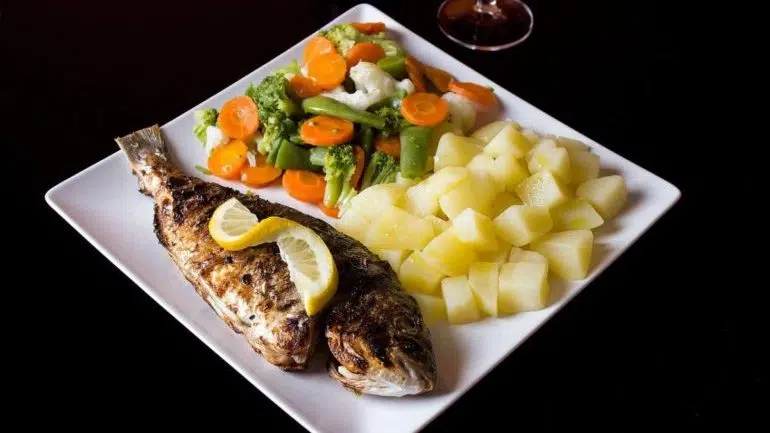
The Day of Saint Ignatius or Ignazhden
After that, we continue Bulgarian Christmas traditions with another fest. It is the start of the winter cycle of the traditional Christmas holidays in Bulgaria – the 20th of December is the Day of Saint Ignatius /Ignazhden/. According to Christian tradition, the labor pains of the Mother of God begin on Ignazhden. These next days are filled with various beliefs and rituals to ensure happiness in the coming year. On Christmas Eve is the first Kadena vecherya/evening. People put vegan food on the table, such as beans, corn, raw wheat, walnuts, and a candle on the bread or wheat. The oldest man walks with incense and charcoal and incenses the house against evil spirits. On Ignazhden, one of the most famous beliefs is that the first person who visits your home will predict the coming year. For instance, if the guest is a lucky man and visits in a good mood, it will be a good and blessed year, but it will be a bad year if a guest visits bearing bad news.
Bulgarian Christmas Traditions: Christmas Decorations
When we talk about traditions, we should mention, of course, the Christmas tree! Families get together, and it’s a great pleasure, especially for the children, to decorate the Christmas tree with lights, balls, toys, and garlands where Santa (Dyado Koleda) will leave their presents. Once upon a time, when I was young, this was usually a cut tree, bringing the wood’s Christmas smell into the house, but it was thrown away after the Christmas holidays. In recent years, artificial Christmas trees have become very popular or planted in a pot instead of buying a cut tree. In the last several years, we have had a good new Christmas tradition in Bulgaria, as in many other countries: If you have a cut tree for the holidays, don’t throw it away. Instead, donate it to the local zoo, where it will be used to feed some of the animals.
There is also an old Bulgarian Christmas tradition from when Christmas ornaments were hard to find. We decorate the tree with handmade toys or wrapped walnuts and other objects in tin foil and hang them on the tree, together with popcorn garlands or paper figures. But we mix it with new ideas influenced by Western Christmas movies, such as children hanging Christmas stockings on the fireplace, hoping for more presents.
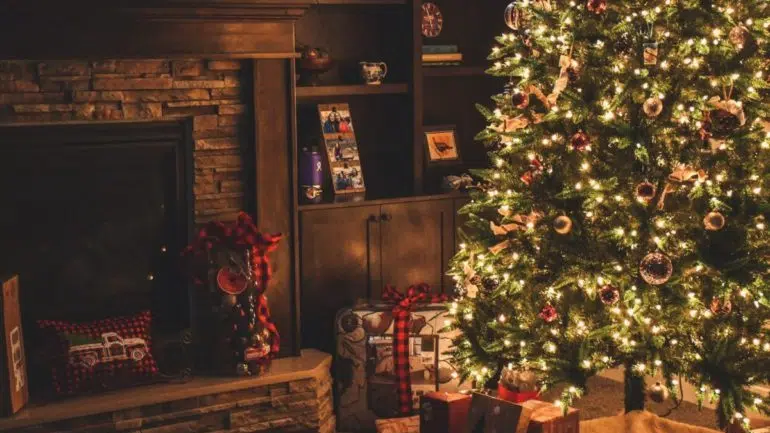
The Famous Christmas Markets in Bulgaria
Bulgaria’s Christmas markets are definitely not among the most famous in Europe. However, Sofia has the most popular one in the garden near The National Theatre, “Ivan Vazov.” The Christmas market is usually German-style “Weihnachstmarkt” mixed with Bulgarian nuances. You can experience it by drinking the traditional rakia drink, shopping for rose oil, or some classical Bulgarian souvenirs. In addition, you can eat donuts, chocolates, and French fries, drink hot wine with cinnamon, and listen to Christmas songs. It could be a lovely experience, especially when going there with friends.
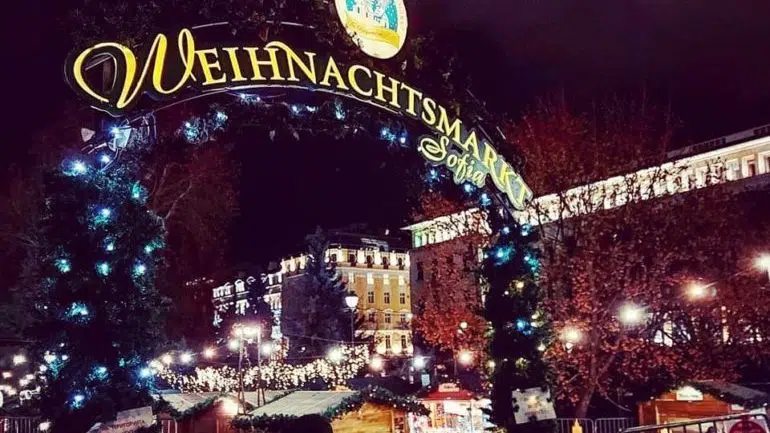
Bulgarian Christmas Traditions on Christmas Eve and Christmas Day
Let’s check some popular Bulgarian Christmas traditions and see if there is something similar to the Christmas holidays in your country.
Christmas Eve With The Family
Bulgarian Christmas traditions are an essential part of the festive season. Some include fasting, enjoying special meals, attending church, and singing carols around the village. Christmas is after the last day of the fasts – the 24th of December – Christmas Eve. In Bulgaria, we associate Christmas Eve (Badni Vecher) with family, warmth, and love. The whole family gets together and prepares for the special evening. Yes, most of the time, the housewife cooks traditional Bulgarian Christmas Eve dishes in the kitchen. However, if you love cooking, it’s time to prepare something that is not usually on the table.
There is also an old Bulgarian Christmas tradition called Budnik on Christmas Eve. The Budnik is a cut trunk of an oak, elm, or pear tree, which people place in the hearth or fireplace and burns at night on Christmas Eve. It is believed that Christmas Eve’s light and warmth symbolize not only the birth of the new Sun and Jesus Christ. But they are the reason the feast is to be visited by the dead ancestors and the Mother of God herself. The family gathers around the burning of the log and says prayers that the coming year brings food, happiness, love, luck, and wealth.
Traditional Christmas Dishes for Christmas Eve Dinner
According to Bulgarian Christmas traditions, you should fast the whole day on the 24th of December (if you are not religious and haven’t fasted for the 40 days before) and eat only vegan food. We prepare different meatless dishes that have to be an odd number. The meal on Christmas Eve has to contain at least 7 meals. It is common to prepare also 9, 11, or in some parts of the country 12 because of the twelve months of the year and to encourage abundance in the coming year.
Some of the delicious traditional Christmas dishes that we serve on Christmas Eve in Bulgaria are:
– Sarmi – the most famous dish – grape or cabbage leaves stuffed with rice, and stuffed peppers with rice or beans
– Honey, for a sweet life
– Bean stew or Bean soup
– Turshia (pickles – a mix of cabbage, cauliflower, carrots, peppers, and herbs marinated in vinegar for a few weeks)
– Pumpkin dishes
– Walnuts – some people believe that they predict fortune. We crack them to predict success or failure for the coming year. If your walnut is whole, you will have a good year, but if it’s empty or with a bad nut, you’ll have a bad year.
– Something to drink – the Bulgarian wine and rakiya
– Oshav (dried fruit tea/soup) – dried plums, dried apricots, oranges – a dried fruit compote
– A lot of fruits like oranges, bananas, apples, and tangerines
-And do not forget the traditional delicious bread – our round flatbread pita. We decorate it with an ornamental cross in the middle and put a hidden coin in it before baking. The elder of the family breaks the bread to share it among the family members, and whoever finds the coin in their piece will be rich and lucky in the coming year. Some families also put other fortunes, such as a clothes button, matchstick, and bean, which will reveal what the next year holds for each person.
If you want to experience and connect with Bulgarian Christmas traditions, you can find recipes for 10 of the most famous Bulgarian Christmas Eve dishes that you can easily prepare.
Setting apart a plate full of food during the feast is common. After dinner, we don’t clean up the table and leave the food overnight. The traditional belief is that Saint Mary and the ancestors’ spirits visit the house before Christmas morning. After dinner, the children go to bed before midnight to ensure Santa will come and leave a gift for them. On the 25th of December, the fast is broken, and people are allowed to eat meat.
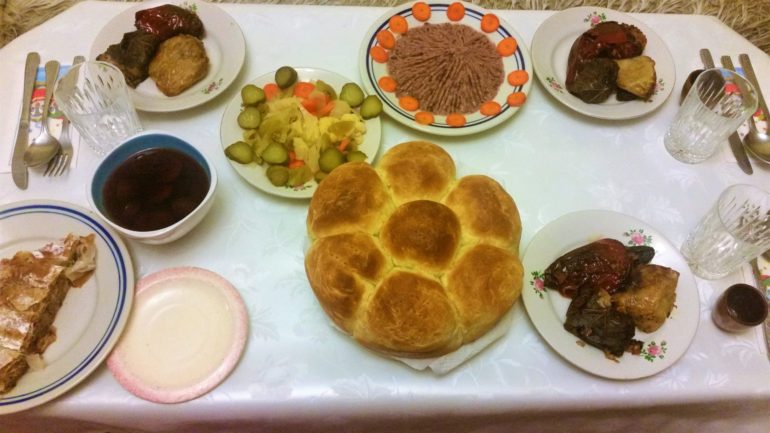
Traditional Bulgarian Carolers: Koledari
After Christmas Eve’s dinner at about midnight, another Bulgarian Christmas tradition happens in Bulgaria – Koleduvane. Only young and single men take part in it. They gather in the house of the group’s leader and dress up in unique traditional clothes, which vary in the country’s regions. After that, Koledari go from house to house singing Christmas carols for health, wealth, happiness, and protection against evil spirits. The songs are often in two parts – half of the Carolers sing, and the other half repeat it. People give them back special food such as “Koledni gevretsi” (Christmas round buns) and “banitsa” (our famous layered pastry filled with cheese). If they visit your home, you will have good luck.
Traditional Bulgarian Christmas Dishes
Christmas in Bulgaria, the 25th of December, is when children find gifts from Santa Claus under the tree, families spend more time together or visit relatives and friends, and we exchange gifts with our loved ones.
We are also ready to stop fasting, and on Christmas Day, it’s time to feast on a rich dinner that finally includes meat. Traditionally, pork dishes are in the center of the Bulgarian Christmas menu. A pig is typically slaughtered and prepared with cooked sour cabbage or other side dishes in rural regions, or people make pork skewers or fried pork cubes. Other meals include turkey with cabbage, sarmi, steaks, and pickles. Better culinarians prepare pumpkins stuffed with meat or Kapama with pork or beef. The Kapama contains sauerkraut/pickles, minced meat, sarmi with meat, sausages, and bacon… Yes, it’s so delicious. Of course, we should not also forget our favorite desserts like banitsa (filo pastry with cheese, pumpkin, or apple) and baklava (filo pastry with chopped nuts and syrup or honey).
The Fireworks Show in Bulgaria on New Year’s Eve
And just to mention the last day of the year and the final celebration around the Christmas holidays. For Bulgarians, New Year’s Eve contains a significant preparation. We spend it at home or in restaurants with friends. We also love traveling to the mountain for a few days to combine it with skiing in the white snow in our fabulous winter resorts or visiting Serbia or Greece to experience their Christmas traditions.
But if you are in Bulgaria on the 31st of December, you will see our fireworks show. Yes, like everywhere, there is a common way to celebrate the coming New Year. But here, you will see big fireworks, crackers, and even gas guns shooting in the air at the same time for at least half an hour. They create a unique view if you’re looking from a high-rise building or Kopitoto (TV tower viewpoint in Vitosha mountain offering some of the city’s best views in Sofia).
There is a festive program in the center of the big cities, where many people gather and celebrate together. They are singing, drinking, and dancing, and at midnight, it’s time for the new beginning. We face it with the Danube dance (Dunavsko horo), often performed on New Year’s Eve after the anthem of Bulgaria and Mnogaja Leta, and with a glass of champagne and good wishes for the coming year.
Bulgarian Christmas Traditions: New Year’s Fortunes
One of our favorite Bulgarian Christmas traditions is the tradition of banitsa with fortunes. We prepare a special dish for New Year’s Eve – this time not pita but the traditional banitsa with fortunes. The Bulgarian banitsa, with little papers in each piece, predicts each person’s future depending on what fortune paper they draw—from health, luck, money, and trips to marriage and baby.
Be careful what you put inside the banitsa and what you will pick. Be careful with the wishes and make them proper for the audience. Use different fortunes for family gatherings and when you celebrate with your friends. Be sure that the fortunes “You will have fun in school” and “Great notes” are not in the same banitsa as “You will meet a sugar daddy next year” or “A hot year with a sexy roommate.” Or don’t be so careful – let the Christmas spirit do its magic and see what the future will bring you.
As you can see, we are brilliant in Bulgaria with the fortunes for the next year – you can check your destiny many times during the holidays in December. If you are unlucky the first time, try again! Oh, you found the coin in the pita – stop then! It is obvious – the future will be bright!
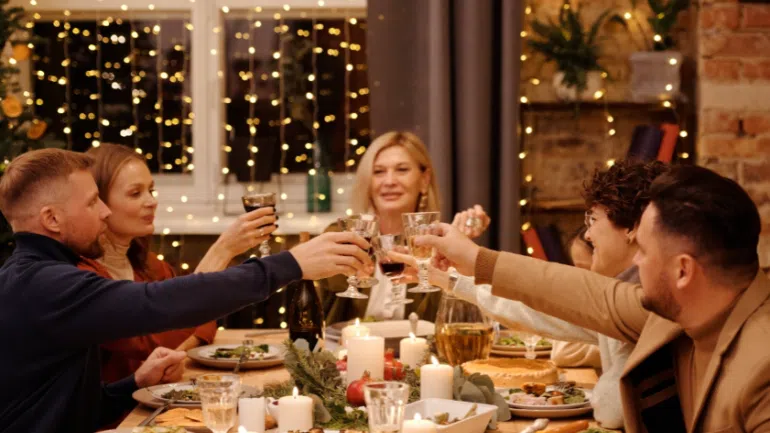
The New Year Starts with Survakane
After the festive evening, start the new year with wishes for health and luck. An old Bulgarian tradition on the 1st of January is Survakane – an exciting custom for the children. It is a child’s lightly beating on adults’ backs with decorated sticks. The stick, named survachka, is made of a cornel branch ornamented with wool, dried fruit, beads, and other small items. Along with the beating, the children say wishes, which are supposed to bring good luck to the adult. In the end, the kids receive some money for their beating (survakane). Though the ritual varies from region to region, Survakane is popular throughout Bulgaria.
Christmas in Bulgaria is a beautiful mix of traditions, family time, and delicious food. From the peaceful Christmas Eve dinner to the joyful feast on Christmas Day, every part of the Christmas celebration is full of meaning and warmth. Whether breaking bread to find the lucky coin, lighting the special Badnik log, or sharing a toast with rakia, these Bulgarian Christmas traditions bring people together and keep Bulgarian customs alive. If you visit Bulgaria during the Christmas holidays, you’ll experience this special time and create memories you’ll never forget.
Inspired? Pin it for later!
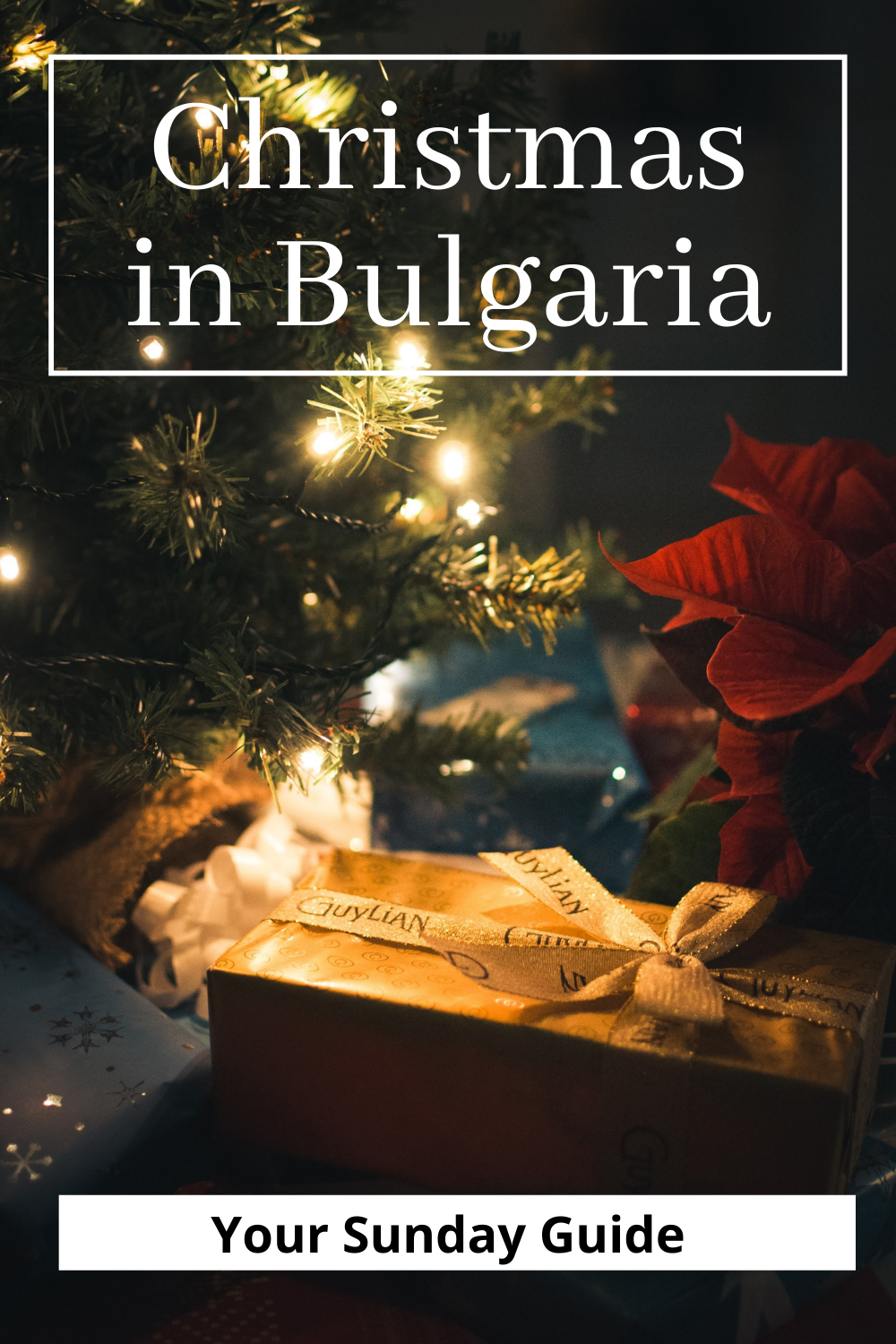
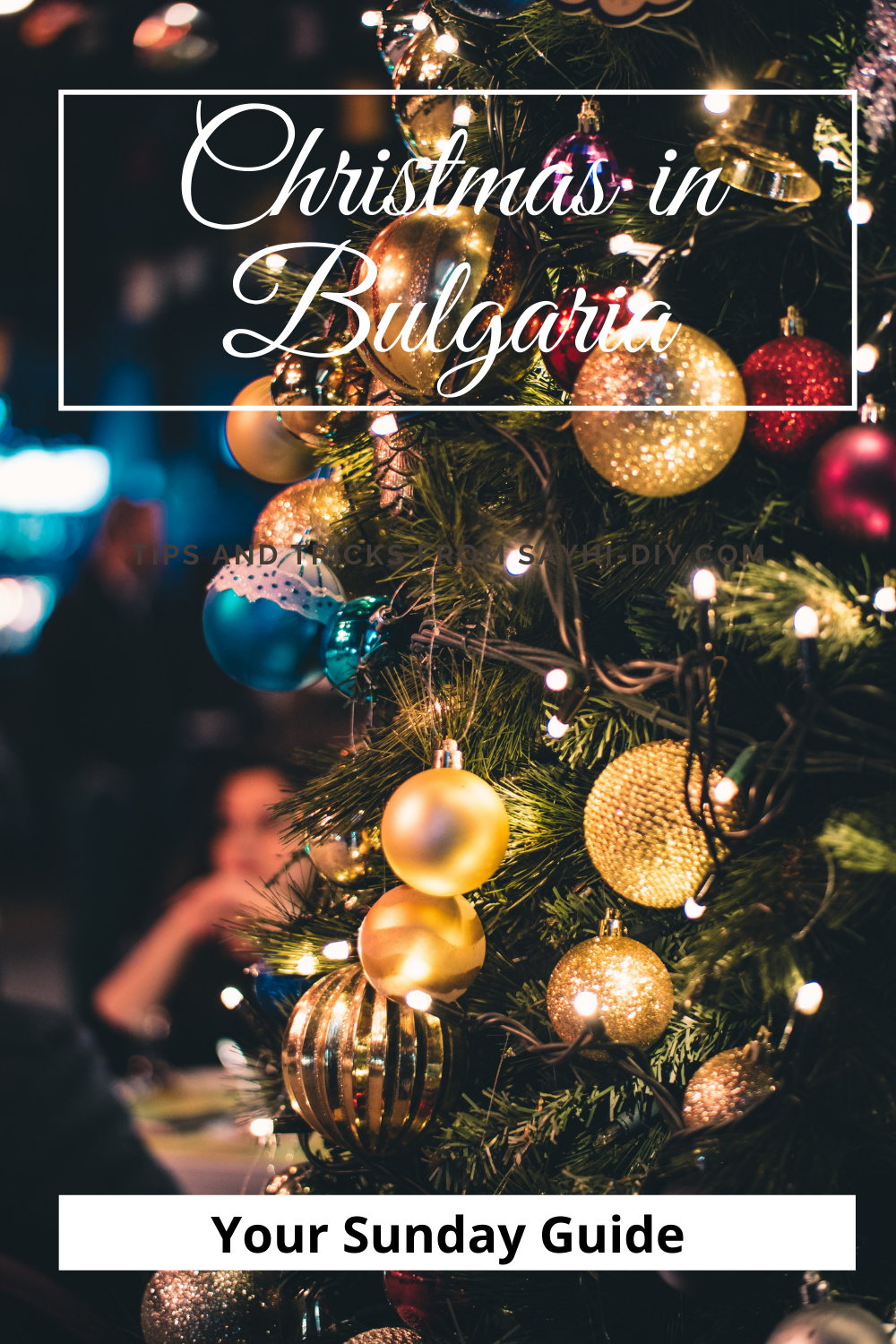
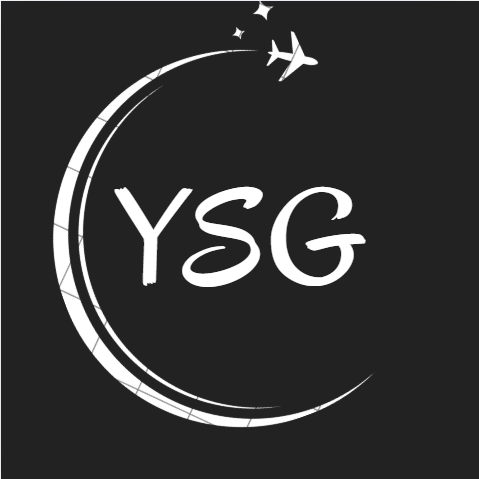
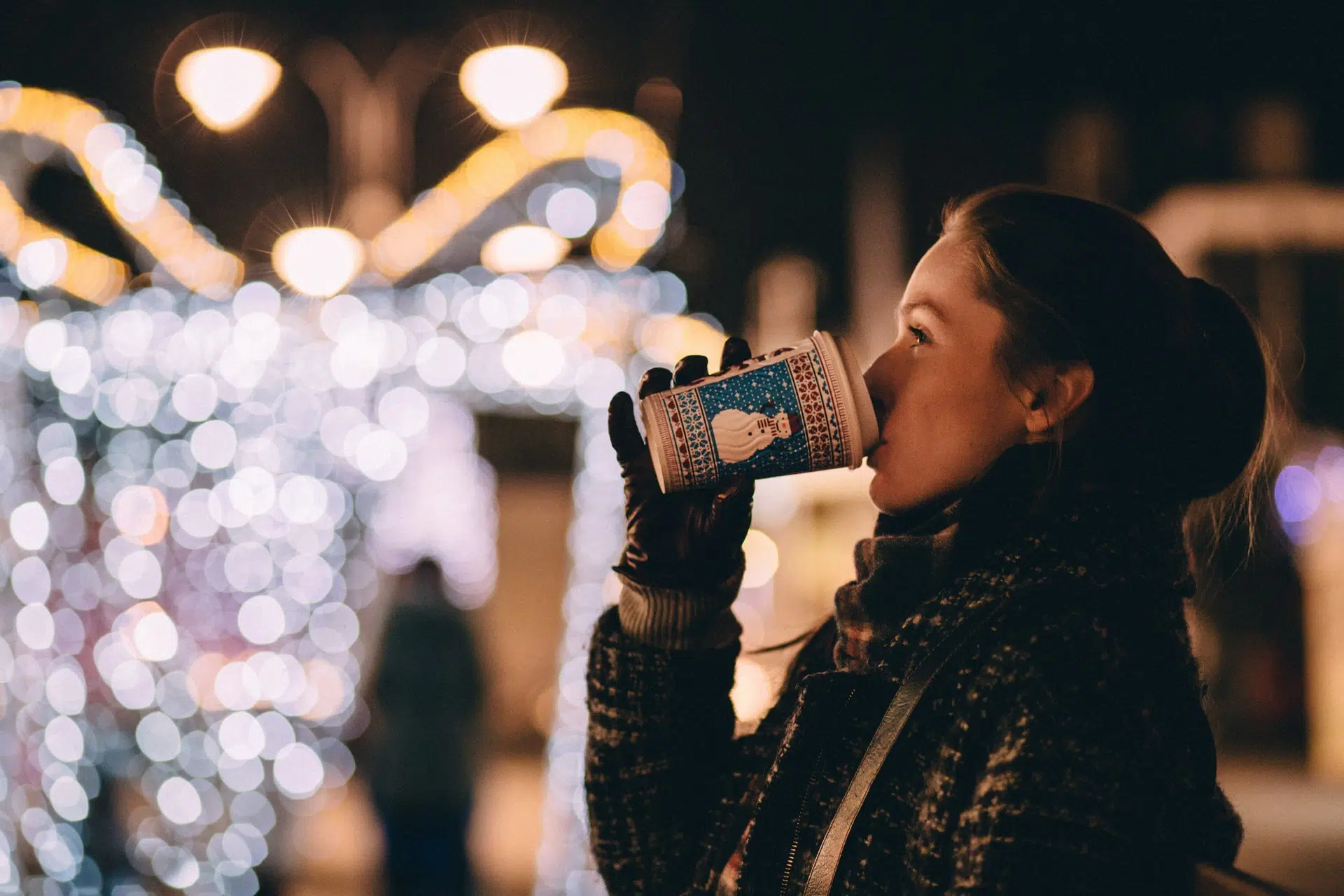

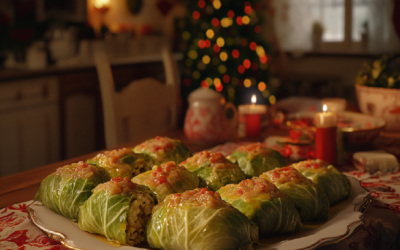
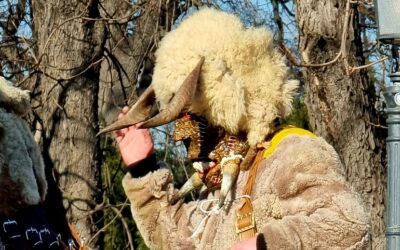
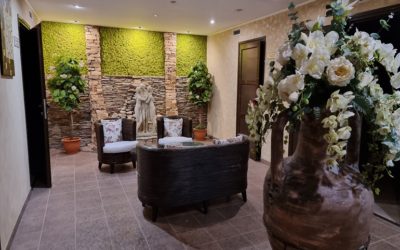
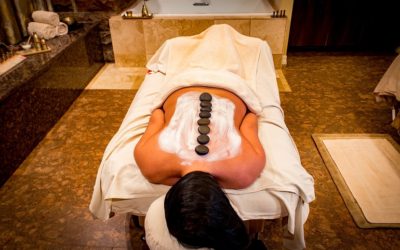
![Christmas Eve Dinner in Bulgaria: Traditional Bulgarian Dishes [2024]](https://yoursundayguide.com/wp-content/uploads/2020/12/christmas-tree-e1628592725920-400x250.jpg.webp)
Well done! Thank you.
Thank you too! Happy holidays!